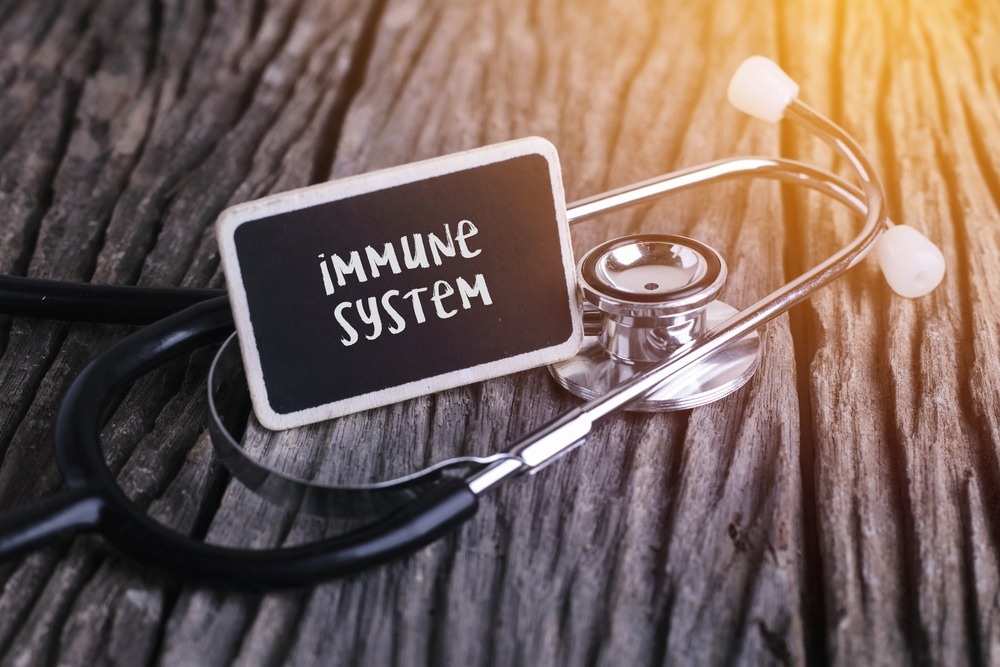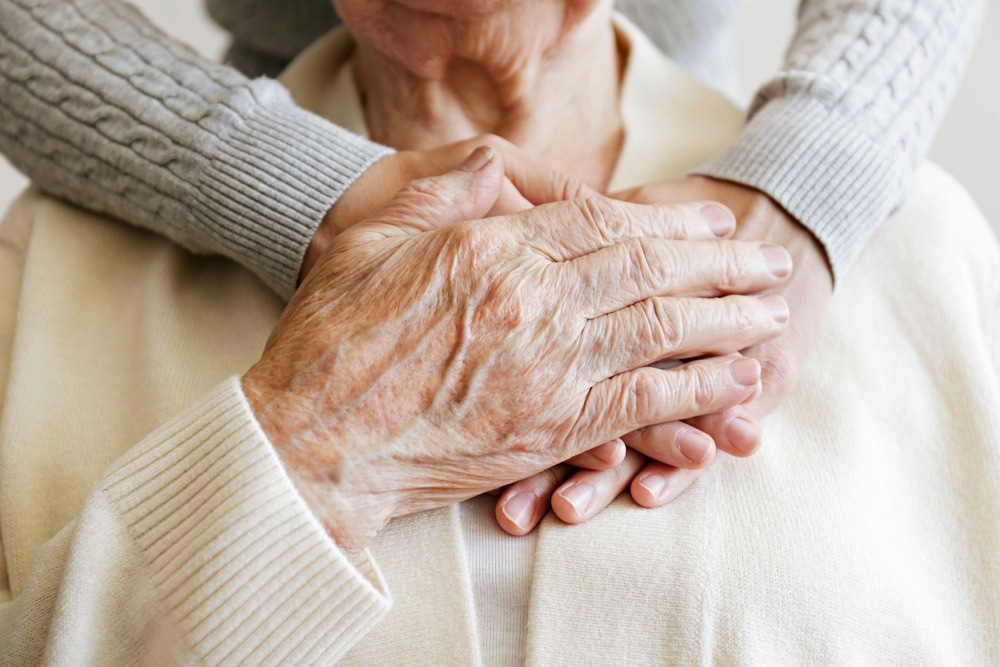Social isolation vs. loneliness
How does loneliness affect the immune system?
Immune dysregulation and loneliness
The importance of reducing loneliness in the elderly
References
Further reading
Humans are social creatures who yearn to interact with others and feel a sense of belonging in their social relationships. Loneliness, which arises when an individual does not experience the intimacy normally associated with these interactions, can cause a wide range of destructive consequences on an individual’s physical health, particularly their immune system.

Image Credit: Jorm Sangsorn/Shutterstock.com
Social isolation vs. loneliness
Social isolation arises when an individual has few social relationships and/or makes little social contact with others. Elderly individuals are at an increased risk of social isolation due to the greater likelihood of impaired mobility, the death of partners, and reduced economic resources in this patient population.
Comparatively, loneliness describes an individual’s perception of social isolation. Loneliness is often accompanied by dissatisfied sentiments towards their relationships with others, as well as how the reality of these relationships differs from those they would like to have. Recent estimates indicate that up to 58% of adults in the United States are considered lonely.
Both social isolation and loneliness can increase an individual’s risk of numerous health conditions, such as cardiovascular disease, mortality, cognitive decline, poor sleep quality, hypertension, and heightened inflammatory responses to stress. Researchers have often questioned whether the health implications of social isolation and loneliness arise through different processes or whether loneliness is associated with distinct mechanisms that subsequently cause social isolation to contribute to certain health risks.
How does loneliness affect the immune system?
The autonomic nervous system is a central network of sympathetic and parasympathetic nerves regulating innate and adaptive immune responses. Socialization can induce changes in the immune system by either slowing or activating the immune response by the sympathetic and parasympathetic nervous systems, respectively.

Image Credit: nelzajamal/Shutterstock.com
Although the ability to exert an immune response to stressors is a shared quality among most healthy adults, the magnitude of these responses to the same psychological stressor can vary between individuals. For example, lonely individuals are more likely to perceive ordinary events as stressful as compared to otherwise social individuals. This can cause lonely people to produce a greater inflammatory response.
Immune dysregulation and loneliness
Dysregulated hyperimmune responses are often observed among individuals suffering from social isolation and/or loneliness. Social disengagement, for example, has been shown to increase the expression of pro-inflammatory response genes that subsequently increase interleukin 6 (IL-6), IL-1 receptor alpha (IL-1Ra), fibrinogen, and cortisol levels while reducing C-reactive protein (CRP) levels.
This type of pro-inflammatory state can increase the response to even mild immune stimuli, such as exposure to bacteria or viruses. In fact, a recent Brain, Behavior, and Immunity study found that following exposure to a small dose of Salmonella typhi, lonely individuals exhibited a four-fold increase in IL-6 levels.
Importantly, this observation was independent of the presence of depression, anxiety, negative mood, and different social skills. Thus, loneliness alone significantly impacts the immune system that is not confounded by other negative socio-emotional factors.
Loneliness can also lead to the release of glucocorticoids like cortisol. In addition to contributing to the increased production of IL-6 and other immune cells, the excessive circulation of glucocorticoids can also promote the release of tumor necrosis factor α (TNF- α), which creates a chronic state of low-grade inflammation.
Immune cells may also become insensitive to persistent exposure to these steroid hormones. As a result, loneliness can reduce the anti-inflammatory effects of glucocorticoids, thereby increasing the individuals’ susceptibility to inflammatory conditions.
The importance of reducing loneliness in the elderly
In the United States, researchers anticipate that one in five Americans will be over 65 by the year 2040, which is significantly greater than the one in eight estimate projected for 2000. This trend of an increasingly aging population is only expected to increase worldwide.
The pro-inflammatory state associated with loneliness can create an environment vulnerable to subsequent infections. Elderly individuals are already predisposed to more severe infections due to the likely presence of other co-morbidities; thus, this risk can be exacerbated when social isolation is also evident.

Image Credit: evrymmnt/Shutterstock.com
Since social isolation and loneliness frequently affect older people, researchers need to investigate different ways these psychological issues can be addressed. The vast impact of both loneliness and social isolation on physical health, particularly in older individuals, further emphasizes the importance of these endeavors.
Such efforts should begin with optimizing appropriate protocols to assess social isolation and loneliness. Promoting certain activities such as socializing, community group membership, and attending cultural events may also enhance social engagement, particularly among older people.
National campaigns and coalitions have been created throughout various countries, including Australia, Denmark, and the United Kingdom, to reduce social isolation and loneliness. Many of these national programs rely on the expertise of scientists, nonprofit organizations, government agencies, community groups, and volunteers to raise awareness of the prevalence of loneliness and provide guidance on how social isolation can be mitigated.
References
- Balter, L. J. T., Raymond, J. E., Aldred, S., et al. (2019). Brain, Behavior, and Immunity 82; 298-301. doi:10.1016/j.bbi.2019.08.196.
- Walker, E., Ploubidis, G., & Fancourt, D. (2019). Social engagement and loneliness are differentially associated with neuro-immune markers in older age: Time-varying associations from the English Longitudinal Study of Ageing. Brain, Behavior, and Immunity 82; 224-229. doi:10.1016/j.bbi.2019.08.189.
- LaBorde, P. J., & Williams, V. (2022). The Surprising Effects of Social Isolation and Loneliness on Physical Health in Older Adults. Advances in Family Practice Nursing 4(1); 13-25. doi:10.1016/j.yfpn.2021.12.001.
- Steptoe, A., Shankar, A., Demakakos, P., & Wardle, J. (2013). Social isolation, loneliness, and all-cause mortality in older men and women. PNAS 110(15). doi:10.1073/pnas.121986110.
- Novotney, A. (2019). The risks of social isolation. American Psychological Association 50(5); 32. Available from: https://www.apa.org/monitor/2019/05/ce-corner-isolation.
- Maes, M., Qualter, P., Mund, M., & Heu, L. (2021). Loneliness: An immunometabolic Syndrome. International Journal of Environmental Research and Public Health 18(22); 12162. doi:10.3390/ijerph182212162.
Further Reading
Last Updated: Apr 11, 2023